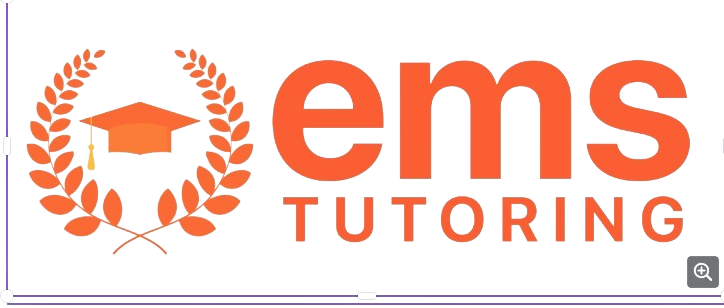
With the passing years, GCSE English exams have undergone several adjustments in test design, evaluation criteria, and course content. The exam structure is carefully crafted to evaluate your reading, writing, interpretation, creative, and analytical skills.
To get good grades, preparing for your exams using expert tips and resources is essential.
At EMS Tutoring, we proficiently teach and guide you in every way. From comprehensive lectures and expert notes to helpful videos and audio, we provide all to ensure you ace your English exam. Our professional teachers also provide expert tips to help you prepare smartly and successfully.
Let’s look into the brief details of the structure of your paper and learn some valuable tips to prepare accordingly.
Structure of the English Language GCSE Exam
All the three boards of GCSE – AQA, Edexcel & OCR – have the following contents in their English Language exams:
- Presenting
- Responding to questions & feedback
- Creative reading
- Extended writing
- Descriptive/narrative writing
- Non-fiction texts
- Creative writing
- Literary non-fiction texts
- Fictional texts
- Use of standard English
Useful Tips for GCSE English Exam
All types of exams contain fiction and non-fiction-based questions, including text-related questions and MCQs. And it would help if you had comprehensive guidelines to prepare for every aspect. Let’s go through some helpful tips:
Read Advanced Fiction Books: It may seem hectic, but ultimately, it will be a blessing in disguise. Once you go through the book’s texts, it will help you grasp the nature of characters and their associated scenes.
This pretty detailed overview also equips you with interpretation and analytical skills to understand the plot twist and grab the character development in the text of your language exam. Having a command of these skills will make the essays and texts easier for you to answer accurately.
Practice Your Creative Writing Anyway: Dealing with complicated essays while complying with language rules demands practising creative writing. Initially, you can keep it simple as you are not supposed to write like experts. Make it your routine, and it will result in catchy writing.
Get a Firm Grip on Your Vocabulary: Vocabulary has the same effect as garnishing on a food item. It reflects your meaning in a true sense, delivering exactly what you want to say. If you adorn your writing with the right vocabulary, it creates a lasting impression on your examiner.
Learn to Identify Specific Words: It’s the blend of adjectives, verbs, nouns, pronouns, etc. that make your writing engaging. Together, they are the basis of every sentence of yours whether you are writing fiction, answering text-based questions, or doing narrative writing. Be clear in identifying their difference and using them correctly to explain your idea precisely.
Practice with the Structure: Using grammar elements and implementing those rules effectively produces a coherent writing structure. Therefore, practice with different texts and analyse their language and structural techniques. The more you practice with your structure, the more you will write precisely and make a grand impact on your examiner.

Make Repetitive Notes: Taking notes is another critical step in preparing for your English language exam. Make sure to circle key terms and highlight relevant points. Note-taking has a sound impact on your learning and helps you get good grades.
Use Practice Papers: Practice papers are just like a virtual teacher that tests your knowledge, highlights your weak points, and enables you to cover these flaws in time.
Additionally, practising papers will familiarise you with the paper’s content so you may not get puzzled while attempting it. Attempting past papers also makes you confident, as you clearly understand what can be asked.
Prepare Thoroughly: It is crucial to stay prepared. Go through the syllabus, whether fiction, non-fiction, or grammar. Sort out what you know, what you do not know, and what you are uncertain about, and prepare accordingly.
Prepare as per the Requirements: One important thing that students usually miss is the need for directional effort. It’s not about preparing random material; it’s about moving in the right direction. Consider the components of your syllabus: fiction, non-fiction, grammar, etc.
- For preparing fiction, read a lot of literature, try to grab it, and solve its papers.
- Revise from the recommended books for a good command of the grammar portion.
- Review samples from your book and other resources to prepare text-based questions and have a clear idea.
Utilise Every Source and Manner of Learning: Another critical step to preparing for your exams is benefitting from every source, whether text, audio, or video. You have to prepare thoroughly; therefore, you should watch helpful videos, read through books online/offline, and listen to the essential audio lectures of your mentors.
Apart from this, some people learn by reading and some by listening or discussions. As far as reading is concerned, all you have to do is make a schedule, find a peaceful corner, and go on. For learning through discussion, make a timetable with your friend and have healthy discussions. Implementing the methods that suit you can help you prepare soundly.
Be Careful About Your Health: Although preparing well demands studying hard, this laborious study must not be hectic and unplanned that deteriorates your health. Get enough sleep and maintain your health before and during the exams to perform well.




